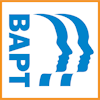BY ROGER PEARMAN
 Even though we know a great deal about individual growth and change, the desired outcome is as Myers’ suggested 50 years ago: “to make our perceptions clearer and judgments more sound.” Myers had in mind that we needed to be clear about our own type pattern and understand the full scope of mental functions available to us. If you relied on Introverted Intuition (for example), you would benefit from knowing about the other three perceptual lenses (such as Introverted Sensing, Extraverted Intuiting and Extraverted Sensing). If you consistently utilized Extraverted Thinking (as another example), then your decision making would be enriched by taking into account the other three strategies (such as Extraverted Feeling, Introverted Thinking and Introverted Feeling). Of course, this is much easier said than actualized in everyday life.
Even though we know a great deal about individual growth and change, the desired outcome is as Myers’ suggested 50 years ago: “to make our perceptions clearer and judgments more sound.” Myers had in mind that we needed to be clear about our own type pattern and understand the full scope of mental functions available to us. If you relied on Introverted Intuition (for example), you would benefit from knowing about the other three perceptual lenses (such as Introverted Sensing, Extraverted Intuiting and Extraverted Sensing). If you consistently utilized Extraverted Thinking (as another example), then your decision making would be enriched by taking into account the other three strategies (such as Extraverted Feeling, Introverted Thinking and Introverted Feeling). Of course, this is much easier said than actualized in everyday life.
When we think about all of the evidence on how the brain works and what is required for shifting perspectives and behaviors, we know that the result is enhanced clarity and focus. From Jung to Kegan, these tremendous thinkers have pointed out that there are multiple strategies and tactics that we can employ to enhance our development. In my work over the years, I’ve found the following actions make the biggest difference:
- Intentional learning with goals in mind
- Experiential engagement
- Churning, which requires skill, effort, and focus
- Active Imagination
- Playing—getting in the zone of fun and creativity
- Brain rules—using them to personal advantage in development
- Utilizing competing commitments
- Idea adventures
- Using lessons of experience
- Feedback for feedforward information
There are specific techniques for each of these and there are obstacles for each of these that vary by type. And of course, if we know the challenge ahead of time, we are better able to reduce the affect this might have on what we are trying to do.
If it was as simple as saying, “I want to developing my Thinking functions more deeply,” then we would do it. But it is more complicated than having a targeted goal. Firstly, we need to understand and explore the function in detail—in other words, we have to make sense of what it means beyond the label and a few descriptive words. Secondly, identifying exemplars and experts who exhibit the use of the function we most deeply want to understand deepens our understanding. Thirdly, creating and implementing little experiments for the use of the function provides a basis of experiencing the full power of the function. Finally, we have to give ourselves a challenge requiring a pronounced use of the function so we can begin to integrate the nature of the function in our approach to daily life.
Jung pointed out many times that we need to learn to consciously use all of our mental functions or our one-sidedness would create a great many problems for us individually and collectively. And if not addressed, then our one-sidedness would get in the way to clearer perceptions and sounder judgments.
About the Author
 Roger Pearman (INFP) is a Talent Development Consultant and Coach, who started his career as Director of a University Learning Center, worked as CHRO in a Financial Services company, then started various companies, including qualifying.org, the first blended learning company for MBTI® and other assessment certifications. He is a Past President of APT International (APTi), is a Myers Research Award and Life Time Contribution Award recipient and also a Professional Contribution Award from the Wake Forest University Graduate School. Currently he is the Managing Partner for TeamTelligent, LLC. He is the Senior author for: I’m Not Crazy, I’m Just Not You; YOU: Being More Effective in Your MBTI Type; The People Skills Handbook: Action Tips for Improving Your Emotional Intelligence and author of HardWired Leadership, Enhancing Leadership Effectiveness through Psychological Type, Introduction to Type and Emotional Intelligence and Personality for Dummies. iPad Applications: TEAMOSITY, Careerfitosity, RELATE! all integrate type into learning tips. Email: pearmanroger@gmail.com,
Roger Pearman (INFP) is a Talent Development Consultant and Coach, who started his career as Director of a University Learning Center, worked as CHRO in a Financial Services company, then started various companies, including qualifying.org, the first blended learning company for MBTI® and other assessment certifications. He is a Past President of APT International (APTi), is a Myers Research Award and Life Time Contribution Award recipient and also a Professional Contribution Award from the Wake Forest University Graduate School. Currently he is the Managing Partner for TeamTelligent, LLC. He is the Senior author for: I’m Not Crazy, I’m Just Not You; YOU: Being More Effective in Your MBTI Type; The People Skills Handbook: Action Tips for Improving Your Emotional Intelligence and author of HardWired Leadership, Enhancing Leadership Effectiveness through Psychological Type, Introduction to Type and Emotional Intelligence and Personality for Dummies. iPad Applications: TEAMOSITY, Careerfitosity, RELATE! all integrate type into learning tips. Email: pearmanroger@gmail.com,

